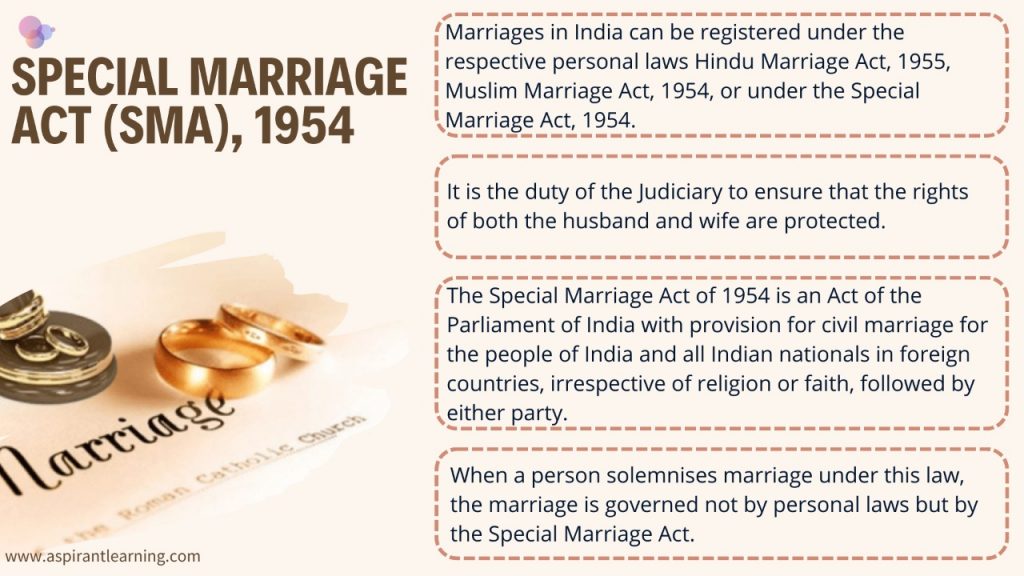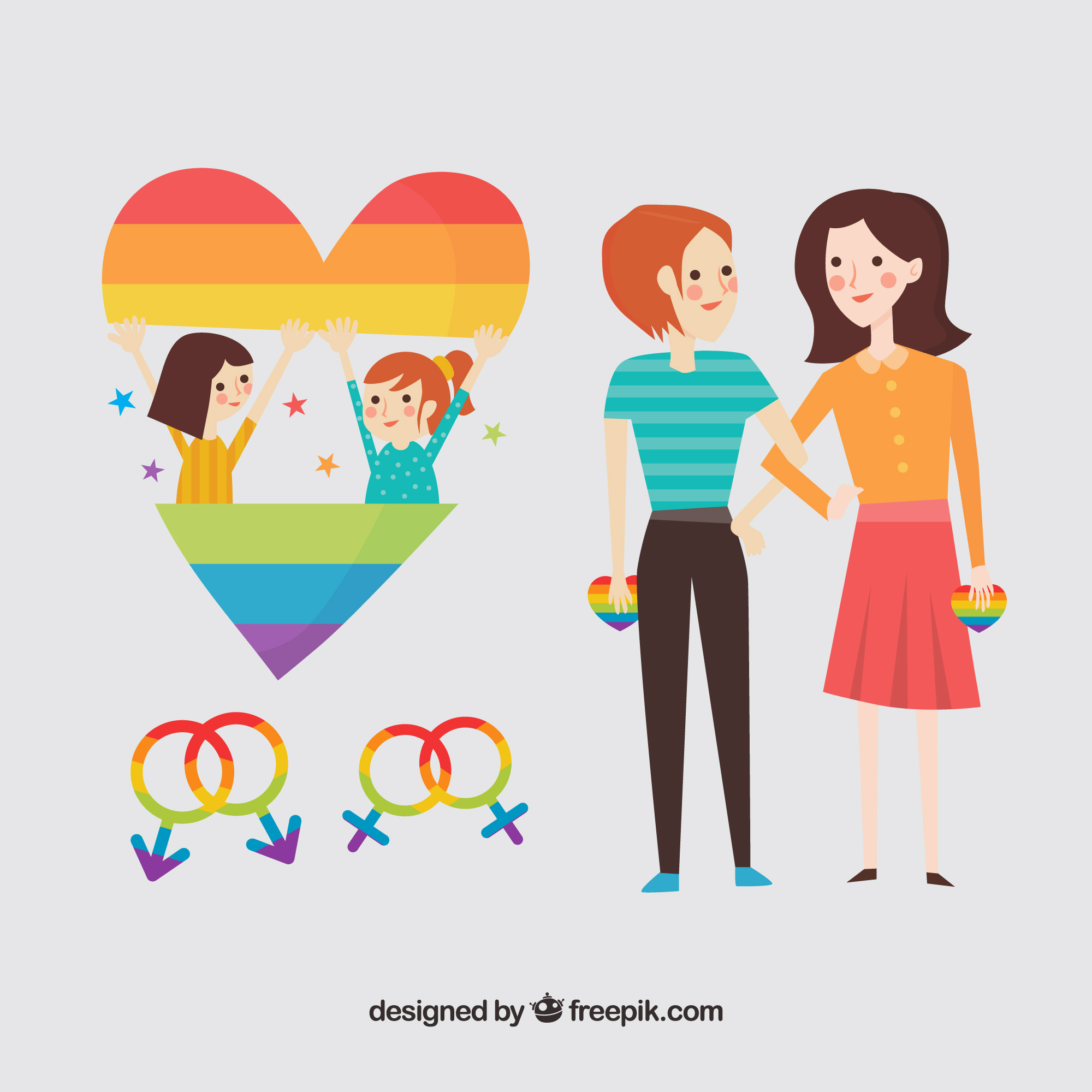News Highlights:
Recently, the Supreme Court has transferred to itself petitions pending in several High Courts seeking legal recognition of same sex marriage.
Key takeaway:
- Petitioners have argued that denying the community the same rights as heterosexual couples violates a clutch of fundamental rights on life and liberty, including Articles 14, 19 and 21 of the Constitution and Article 16 of the Universal Declaration of Human Rights, to which India is a signatory.
- Article 16 says, “Men and women of full age, without any limitation due to race, nationality or religion, have the right to marry and to found a family”.
Issues Raised in the court:
- Constitutional right violations:
- Public Interest Litigation (PIL) filed by two LGBTQ+ couples arguing that the state’s refusal to recognise them as married violated their constitutional rights.
- Some petitioners have been in a relationship for 17 years and are raising children together. However, their lack of marriage status indicates they cannot have a legal relationship with their children.
- Some petitions seeking recognition of same-sex marriage under India’s 1954 Special Marriage Act (SMA) are pending in state-level high courts in Delhi and Kerala.
- Decriminalisation of homosexuality:
- The recognition of same-sex marriage followed earlier landmark rulings, including one declaring privacy a fundamental right and another decriminalising homosexuality in 2018.
- The government opposed same-sex marriage in the Delhi High Court in 2021, stating that marriage in India can be recognised only if it’s between a biological man and a biological woman capable of producing children.
- Societal morality:
- The Centre government also stated that considerations of “societal morality” are relevant in considering the validity of a law. The Legislature must enforce such societal morality and public acceptance based upon Indian ethos.

Same-sex marriage:
- About:
- Same-sex marriage, also known as gay marriage, is the marriage of two people of the same sex or gender.
- As of 2023, marriage between same-sex couples is legally performed and recognised in 33 countries, constituting some 1.35 billion people (17% of the world’s population), the most recent being Mexico.
- Adoption rights:
- Adoption rights are not necessarily covered, though most states with same-sex marriage allow those couples to adopt as other married couples can jointly.
- Scientific studies:
- Scientific studies show that the financial, psychological, and physical well-being of gay people is enhanced by marriage and that the children of same-sex parents benefit from being raised by married same-sex couples within a marital union recognised by law and supported by societal institutions.
- Social science research:
- Social science research indicates that the exclusion of same-sex couples from marriage stigmatises and invites public discrimination against gay and lesbian people, with research also repudiating the notion that either civilisation or viable social orders depend upon restricting marriage to heterosexuals.
- preventative measures:
- In contrast, 34 countries (as of 2021) have definitions of marriage in their constitutions that prevent marriage between couples of the same sex, most enacted in recent decades as a preventative measure.
Issues faced by LGBTQ+ Communities in India:
- Multiple forms of marginalisation:
- LGBTQ+ individuals may experience multiple forms of marginalisation – such as sexism, poverty, discrimination, social unacceptability or other factors – alongside homophobia or transphobia that negatively impact their mental health.
- Often, LGBTQ+ people lack access to basic services such as medical care, justice and legal services, and education.
- Family Reactions:
- Rejection and serious negative reactions kept many LGBTQ+ youngsters from telling their parents about their feelings.
- In a society bound by a rigid set of social and cultural norms that dictate the terms and conditions of education, career and marriage, the lack of family support can be a big blow to the mental and physical health of LGBTQ+ people.
- Negative stereotypes:
- LGBTQ+ people are labelled with negative stereotypes and made fun of, thereby robbing them of their goal of getting recognition and making them feel socially excluded.
- Socially Unrecognised:
- School uniforms, dress code and appearance, and access points for travel (including ticket booking forms, security screening and toilets) are often gendered.
- Frequently, LGBTQ+ individuals are forced to negotiate their gender identity in public while on public transportation.
- As a biological term, sex is always Male, female or transgender. However, as a social category, gender may vary.
Way Forward:
- The LGTBQ community needs an anti-discrimination law that empowers them to build productive lives and relationships irrespective of gender identity or sexual orientation and places the onus to change on the state and society and not the individual.
- Once members of the LGBTQ community “are entitled to the full range of constitutional rights”, it is beyond doubt that the fundamental right to marry a person of one’s own choice has to be conferred on same-sex couples intending to marry.
- More than two dozen countries have legalized same-sex marriage.
Pic Courtesy: Freepik
Content Source: The Hindu



